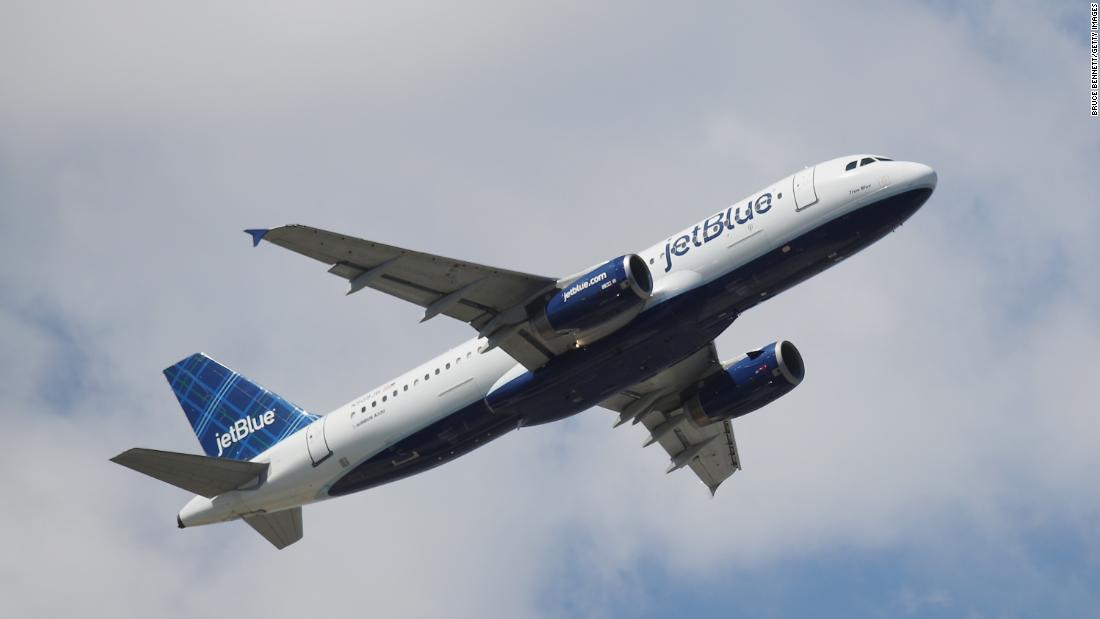After weeks of turmoil over the economic toll of the coronavirus, U.S. stock indexes entered a bear market, signaling an end to their 11-year winning streak.
Jeenah Moon/Getty Images
hide caption
toggle caption
Jeenah Moon/Getty Images
Updated at 11:12 a.m. ET
The stock market extended its relentless, breathtaking drop Thursday — moving deeper into bear territory — with major U.S. indexes sinking as much as 8%. Stocks fell so fast, it triggered a 15-minute halt in trading for the second time this week.
The Dow Jones Industrial Average plunged more than 1,900 points, or 8%. The S&P 500 and the Nasdaq were each down about 7%.
Those indexes are now down at least 24% from record highs set just last month.
The market tumble came hours after President Trump announced a 30-day ban on travel from European countries (but not the United Kingdom) to the United States.
Trump said it was an effort to stem the spread of the coronavirus, but the move caused confusion on both sides of the Atlantic and drew skepticism from several health experts. And it was also another blow to airlines, hotels and tourist attractions that have already taken a beating.
Thursday's stock market drop followed a nearly 6% percent plunge in the Dow on Wednesday, when the blue chip index entered a bear market, defined as falling 20% from its peak. The S&P 500 is now also in a bear market, ending an 11-year winning streak.
In addition to the travel ban, Trump also announced measures to overcome "temporary economic disruptions" caused by the disease. The proposals include a $50 billion program to provide low-interest loans to small businesses affected by the coronavirus.
Congressional Democrats also unveiled a legislative stimulus package aimed at easing the economic damage. Their plan includes expanded unemployment reimbursement for states, extra money for food security for low-income children and federally funded family and sick leave for people affected by the virus.
The coronavirus pandemic has had far-reaching and quickly developing economic impacts.
Thursday morning, Princess Cruises, which has had several ships hit by coronavirus outbreaks, announced it will pause operations of its 18 cruise ships globally for 60 days. The move is in response "to the unpredictable circumstances evolving from the global spread of COVID-19," the company said.
The airline industry has also been hard hit by travel cancelations and travel restrictions. "I would say we're in the middle of a very significant impact, some would say devastating impact, to the airline industry," JetBlue CEO Robin Hayes told NPR.
Wednesday night, the NBA suspended the rest of its season after a player on the Utah Jazz preliminarily tested positive for the coronavirus.
The European Central Bank became the latest to try to offset the effects of the crisis, announcing a series of stimulus measures to help banks and other businesses. But, unlike the Federal Reserve and the Bank of England, the ECB failed to cut interest rates.
"The spread of the coronavirus has been a major shock to the growth prospects of the global economy and the euro area economy, and it has heightened market volatility," ECB President Christine Lagarde told a news conference, according to Reuters.
Let's block ads! (Why?)
https://news.google.com/__i/rss/rd/articles/CBMiWGh0dHBzOi8vd3d3Lm5wci5vcmcvMjAyMC8wMy8xMi84MTQ4NTM4OTgvc3RvY2tzLWluLW1lbHRkb3duLW92ZXItdHJ1bXBzLWNvcm9uYXZpcnVzLXBsYW7SAQA?oc=5
2020-03-12 15:26:44Z
52780661379394




